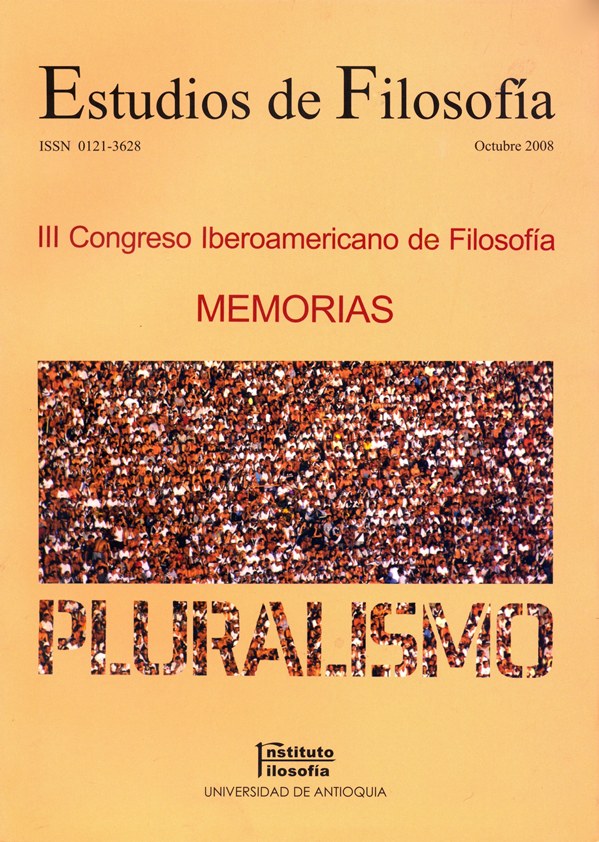Pluralism as cosmopolitanism
DOI:
https://doi.org/10.17533/udea.ef.12953Keywords:
pluralism, Habermas, Kant, political liberalismAbstract
Pluralism as a factum is an ethical pluralism, of conceptions of a good life -religious or not-, while pluralism as a regulative idea is a political task that, from modernity to the present, requires thought and imagination. To address the theme that brings us together in this Congress, I propose to take into account the two edges -descriptive and normative- of pluralism, that is, to assume that the conditions of difference in the modern world were neither as many nor the same as the present, that is, to attend to the undeniable expansion of the geographical scene and of the movements and groups that want to affirm their identity in the face of a hegemonic culture. Such cartography invites us to reconstruct the normative intuitions of political liberalism -first version of response to the challenge of ethical pluralism- to its most elaborate version in contemporary debate, with the aim of investigating whether they can serve as a model to face the challenges of the present. I will do so from the proposal of Jürgen Habermas, in my opinion not only one of the clearest defenders of liberalism, but the architect of one of the most solid and innovative versions of this tradition. [Fragment]
Downloads
Downloads
Published
How to Cite
Issue
Section
Categories
License
Copyright (c) 2008 Ángela Calvo de Saavedra

This work is licensed under a Creative Commons Attribution-NonCommercial-ShareAlike 4.0 International License.
Authors who publish with this journal agree to the following terms:
1. The Author retains copyright in the Work, where the term "Work" shall include all digital objects that may result in subsequent electronic publication or distribution.
2. Upon acceptance of the Work, the author shall grant to the Publisher the right of first publication of the Work.
3. The Author shall grant to the Publisher a nonexclusive perpetual right and license to publish, archive, and make accessible the Work in whole or in part in all forms of media now or hereafter known under a Creative Commons Attribution-NoCommercia-ShareAlike (CC BY-NC-SA 4.0), or its equivalent, which, for the avoidance of doubt, allows others to copy, distribute, and transmit the Work under the following conditions: (a) Attribution: Other users must attribute the Work in the manner specified by the author as indicated on the journal Web site;(b) Noncommercial: Other users (including Publisher) may not use this Work for commercial purposes;
4. The Author is able to enter into separate, additional contractual arrangements for the nonexclusive distribution of the journal's published version of the Work (e.g., post it to an institutional repository or publish it in a book), as long as there is provided in the document an acknowledgement of its initial publication in this journal;
5. Authors are permitted, and Estudios de Filosofía promotes, to post online the preprint manuscript of the Work in institutional repositories or on their Websites prior to and during the submission process, as it can lead to productive exchanges, as well as earlier and greater citation of published work (see The Effect of Open Access). Any such posting made before acceptance and publication of the Work is expected be updated upon publication to include a reference to the Estudios de Filosofía's assigned URL to the Article and its final published version in Estudios de Filosofía.















